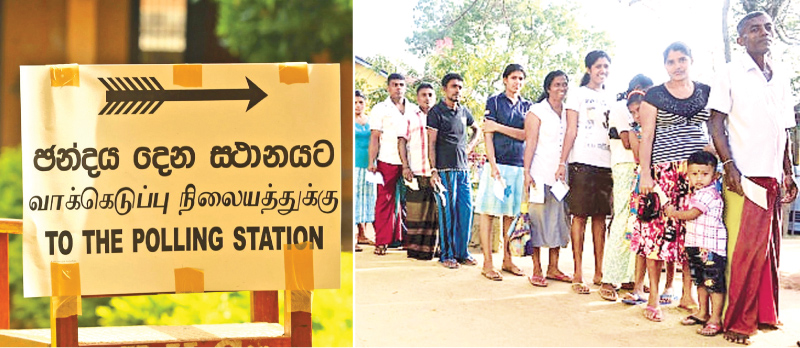Sri Lanka President Ranil Wickremesinghe promised not to dissolve the parliament and hold a snap poll until the island nation’s economic crisis is resolved and bring change the youth-protesters wants amid opposition criticism over the government dragging elections.
Wickremesinghe, who became the president in July in an unexpected way, can dissolve the parliament after February next year.
The country’s Election Commission has said it could hold the local government polls after February 20, but Wickremesinghe’s government has appointed a three-member committee to look into delimitation which is changing the boundaries of electorates.
Political analysts say a snap poll next year could lead to a hung parliament and reverse proposed reforms necessary to go with a $2.9 billion International Monetary Fund loan needed to move away from the current unprecedented economic crisis.
“I will not be dissolving the Parliament. The economy is in a massive problem and once that is resolved we can go for election,” Wickremesinghe told the parliament.
Sources close to President Ranil Wickremesinghe said that he is likely to hold presidential elections first before any other polls. The government has to go for local government polls by March next year, but the government has appointed a new commission to look into electorate boundaries, a move seen by opposition as a delaying tactics.
Sri Lanka had mass protests against economic mismanagement by then government led by former president Gotabaya Rajapaksa. Later, the youth led protests, ousted Rajapaksa and his government in July after the country defaulted sovereign debt following a currency collapse, heavy money printing, and wrong economic policies.
The youth-led protesters started the agitation against high cost of living, shortage of essentials, and food shortage under ex-President Rajapaksa.
President Wickremesinghe has invited youth interested in politics to join the government as a pledge to anti-government protestors who demanded more youth representation in the Parliament and government.
“I have asked for the names of the youth who are interested in entering politics. I would like the five names before the end of December and they must be appointed by January because we are here to make a change,” he said.
“Whenever I go for gatherings it’s the same old faces and there is nothing new, no new ones. Youth want a change and after we achieve that then we will go for an election,” said Wickremesinghe.
Sri Lanka’s opposition parties and many protestors who led the ousting of Rajapaksa are now demanding both the local government and parliamentary polls citing that the present government has no mandate to be in power as its failed economic policies have forced the people to oust them.


